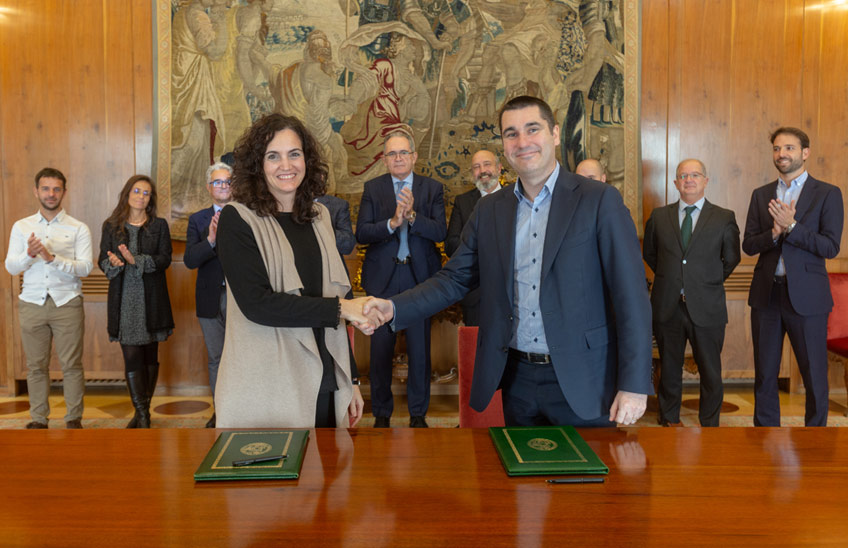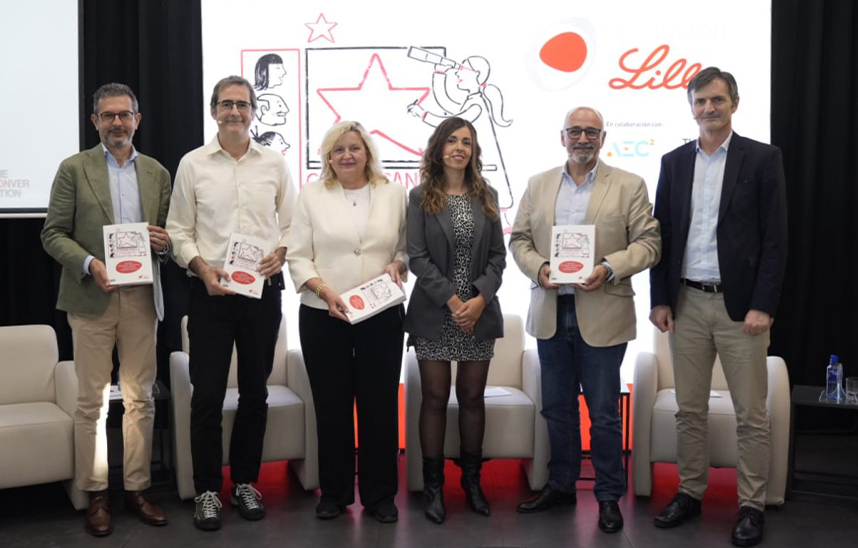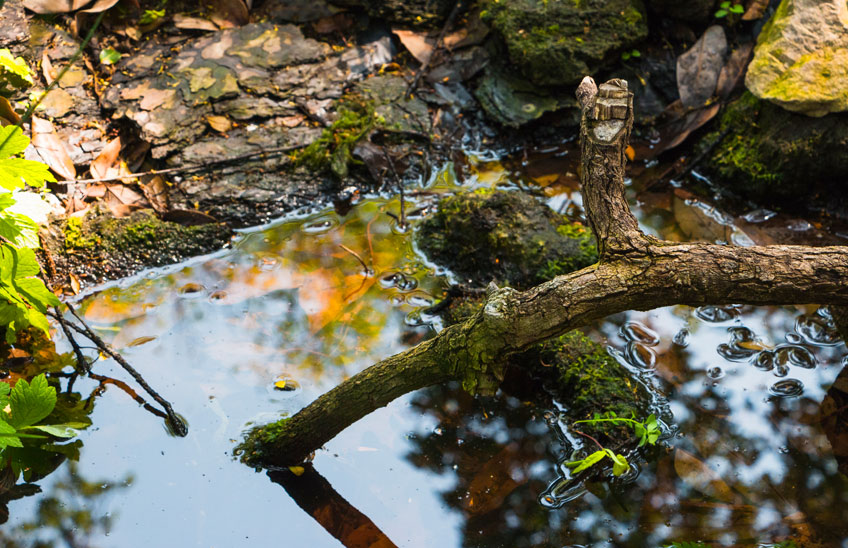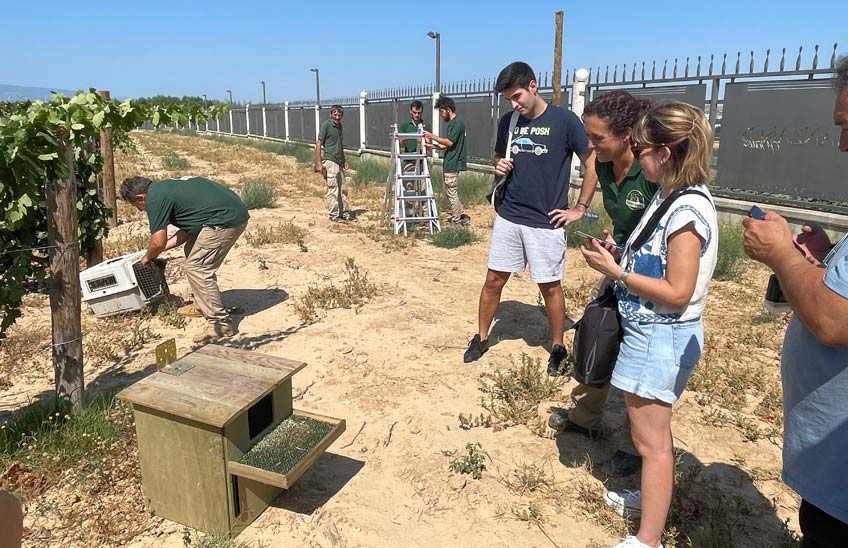The University and Groupe Roullier promote scientific and technological innovation applied to agriculture
The academic center and Timac Agro España, a subsidiary of Groupe Roullier, reinforce their partnership to develop research projects in search of more efficient fertilizers with less environmental impact.

FotoManuel Castells<br>/Paloma Grau, vicerrectora de Investigación y Sostenibilidad de la Universidad de Navarra, y Thomas Georgelin, director general de CMI Roullier, durante la firma del convenio.
22 | 02 | 2024
The University of Navarra and Groupe Roullier (represented by Agro Innovation International and Timac Agro España S.A) have signed a program contract of partnership to reinforce the agricultural research they have been carrying out since 2015.
This new alliance seeks to promote scientific and technological innovation to develop more efficient fertilizers with less environmental impact. To this end, over the next five years, they will promote innovative joint research projects, facilitate the application of research to agro-industrial production and train to the research groups of the Biodiversity and Environment Institute of the University of Navarra, belonging to the BIOMA Centerand researchers from the Roullier World Innovation Center to participate in national and international research programs.
The event, held in the academic center of Navarra, was attended by Paloma Grau, Vice President of research and Sustainability of the University of Navarra; Thomas Georgelin, director general of CMI Roullier; Ricardo Llátser Oliva, director general Timac Agro España S.A.; Fernando de la Puente, director of research and development of BIOMA Center; and Full Professor José María García-Mina, researcher principal of group Chemistry and Agricultural Biology, who will lead the research Program established at agreement.
José María García-Mina has highlighted the relevance of this agreement that underlines "the importance of the joint research between business and university, and sample the synergies between fundamental and applied research , which are the two sides of the same coin". Thus, "the magnitude of this research will allow the development of new solutions and fertilization strategies with high efficiency and without risks for the environment".
Thomas Georgelin, director general manager of CMI Roullier, emphasized the future benefits of this partnership: "By combining our strengths, we will integrate academic expertise with industrial know-how to develop solutions for tomorrow's agriculture. Thanks to Timac Agro Spain's proximity to farmers, this partnership will allow us to integrate research with field experience."
For her part, the Vice President of research and Sustainability of the University of Navarra, Paloma Grau, thanked Groupe Roullier for its partnership with the University of Navarra, "a confidence in the scientific quality of our researchers that began in 2015 and that is strengthened with the launch of this ambitious project ".
Smart' and sustainable nutrition for the fields
The project of research that supports this agreement is materialized in several lines of work focused on the development of new, more efficient fertilizers and biostimulants with less impact on the environment.
Along these lines, scientists will try to optimize the preparation of 'smart' fertilizers. "Plant roots secrete compounds as an expression of their nutritional needs. Based on this natural process, we will investigate how to design fertilizers capable of reacting to these compounds to provide the plant with the nutrients it can assimilate. This would greatly reduce important problems associated with the detrimental effect of excess nutrients in the soil, such as plant diseases or serious ecological and environmental disorders, since excess nutrients leach into the soil and are washed into the groundwater, reaching lakes and springs," explains García-Mina.
To conclude the event, Grau, recalled that "this sustainable approach to agriculture to meet the social demand for staple foods is directly aligned with the 2025 Strategy of the University, focused on sustainable development and care for people and the environment. Through a research of excellence we seek to generate a positive social impact and advances in Sustainability, with special attention to the Environment and Biodiversity, seeking to put our science at the service of society".



